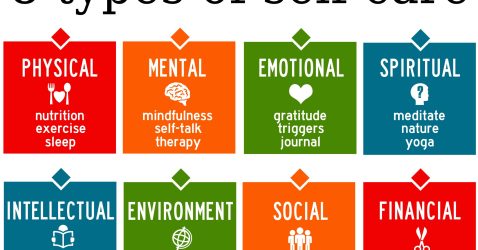Career Transitions: Embracing Change Mindfully
Are you feeling uncertain about making a career change? In the fast-paced world we live in, it’s not uncommon to feel overwhelmed or apprehensive when faced with the prospect of embarking on a new professional path. But don’t worry, because in this article, we will explore the power of embracing change mindfully during career transitions. We’ll delve into strategies for managing uncertainty, finding clarity, and ultimately making the most of this exciting opportunity for personal and professional growth. So, let’s embrace change together and navigate this journey with confidence and mindfulness.
Understanding Career Transitions
Defining career transitions
Career transitions refer to the process of making a change from one profession or job role to another. It involves moving from one career path to another, often with different responsibilities, skills, and opportunities. Career transitions can be a result of various factors, such as job dissatisfaction, burnout, or the desire for personal growth and development. It is a significant life decision that requires careful consideration and planning.
Common reasons for career transitions
There are several common reasons why individuals may choose to embark on a career transition. One reason could be dissatisfaction or burnout in their current career. Feeling unfulfilled or experiencing a lack of challenge and growth can prompt someone to seek new opportunities. Other reasons include a desire for higher income, improved work-life balance, or a passion for a different field or industry. Additionally, changes in the job market, technological advancements, or organizational restructuring may also necessitate a career transition.
Benefits of embracing career transitions
Embracing career transitions can bring about numerous benefits that can enhance an individual’s personal and professional life. Firstly, transitioning to a new career allows individuals to explore and pursue their passions and interests, leading to a greater sense of fulfillment and happiness. It promotes personal growth and development, encouraging individuals to step out of their comfort zones and acquire new skills and knowledge. Career transitions also open doors to new opportunities, expand professional networks, and provide a fresh perspective on one’s career. Lastly, embracing career transitions can lead to increased job satisfaction, higher motivation, and overall improved work-life balance.
Assessing Personal Motivations
Identifying dissatisfaction or burnout in current career
One crucial step in considering a career transition is identifying any dissatisfaction or burnout in one’s current career. This involves reflecting on how you feel about your job on a regular basis. Are you consistently bored, unchallenged, or unfulfilled? Do you dread going to work every day? These indicators can suggest a need for change. It is important to assess whether these feelings are temporary or if they have been present for an extended period. Understanding the underlying reasons for your dissatisfaction can provide insights into what you are seeking in a new career.
Exploring personal values and interests
exploring personal values and interests is another important aspect of assessing personal motivations for a career transition. Take the time to reflect on what truly matters to you, what you are passionate about, and what brings you joy and fulfillment. Consider your hobbies, extracurricular activities, and any other areas where you find yourself engaged and enthusiastic. Aligning your career with your values and interests can significantly increase your satisfaction and find greater meaning in your work.
Setting clear career goals
To effectively assess personal motivations, it is essential to set clear career goals. Determine what you want to achieve in your new career, both in the short-term and long-term. Are you seeking a role with more responsibility, a higher income, or a better work-life balance? Setting specific and measurable goals can provide a sense of direction and focus during the transition process. It also allows you to track your progress and make adjustments along the way.
Researching New Opportunities
Conducting market research on in-demand industries
Once you have identified the need for a career transition and set your goals, it is crucial to conduct market research on in-demand industries. Explore sectors that align with your interests and values, and analyze their growth potential and job prospects. Look for industries that are experiencing significant growth or have high demand for skilled professionals. This research will help you identify opportunities and potentially uncover new industries that you may not have considered before.
Exploring different job roles and sectors
In addition to researching industries, it is important to explore different job roles and sectors within those industries. Consider the skills and knowledge required for various positions and assess how they align with your strengths and interests. This exploration can help you gain a broader understanding of the possibilities available and identify roles that resonate with your career goals. Reach out to professionals working in those positions to gain insights into their day-to-day responsibilities and the skills they find valuable in their roles.
Networking and gathering information from professionals in desired fields
Networking and gathering information from professionals in your desired fields is a valuable way to gain first-hand knowledge and insights. Attend industry events, join professional associations, and connect with individuals already working in the industries or roles you are considering. Engage in informational interviews where you can ask questions about their experiences, challenges, and advice for transitioning into their field. Building these connections can provide valuable guidance and potentially lead to job opportunities during your career transition.
Developing Necessary Skills
Identifying transferable skills and knowledge
When embarking on a career transition, it is essential to identify the transferable skills and knowledge you possess. Transferable skills are those that can be applied across different industries or job roles. These skills may include problem-solving, leadership, communication, or project management. Evaluate your current skillset and determine how they can be valuable in your desired career. Highlight these transferable skills on your resume and during interviews to demonstrate your ability to adapt and thrive in a new role or industry.
Seeking additional education or training if needed
Depending on the requirements of your desired career, you may need to seek additional education or training. Research the qualifications and certifications that are commonly sought after in your target industry or role. Consider enrolling in courses, workshops, or degree programs that can help you acquire the necessary knowledge and skills. If you are unable to commit to full-time education, explore online courses or part-time programs that offer flexibility while still allowing you to gain the essential skills.
Building relevant skills through volunteering or freelancing
Another way to develop necessary skills is through volunteering or freelancing opportunities. Seek out organizations or projects where you can contribute your skills and gain hands-on experience in your desired field. This not only enhances your resume but also allows you to demonstrate your passion and dedication to your new career path. Freelancing or taking on contract work can be an excellent way to gain practical experience, build a portfolio, and establish a network of clients or contacts within your target industry.
Creating a Transitional Plan
Setting short-term and long-term career goals
Creating a transitional plan involves setting both short-term and long-term career goals. Short-term goals may include updating your resume, attending networking events, or gaining relevant certifications. Long-term goals, on the other hand, focus on where you envision yourself in your new career path. These goals may include obtaining a specific job title or reaching a certain level of responsibility within a set timeframe. Ensure your goals are specific, measurable, attainable, relevant, and time-bound (SMART goals) to provide a clear roadmap for your career transition.
Creating a financial plan to support the transition period
Transitioning careers often involves some period of financial instability, especially if you are switching to a lower-paying entry-level position or pursuing additional education. Creating a financial plan is crucial to ensure you can support yourself during this transitional period. Evaluate your current financial situation, including savings, expenses, and any potential financial support. Develop a budget that takes into account your anticipated income and expenses during the transition, ensuring you have enough financial stability to focus on your career goals.
Developing a timeline and action steps for achieving career goals
To effectively execute your transitional plan, it is important to develop a timeline and action steps for achieving your career goals. Break down your goals into smaller, manageable tasks and assign deadlines to each task. This approach helps you stay organized, motivated, and accountable for your progress. Regularly review and adjust your timeline and action steps as necessary to ensure you are on track with your career transition journey.
Building a Support System
Seeking mentorship or coaching from experienced professionals
Building a support system is crucial during a career transition. Seek out mentors or coaches who can provide guidance and support based on their own experiences in the industry or role you are transitioning into. These individuals can offer valuable insights, share strategies for success, and provide feedback on your progress. Leverage their expertise to navigate challenges and make informed decisions throughout your career transition.
Joining professional networking groups or communities
Joining professional networking groups or communities is another effective way to build a support system. These groups provide the opportunity to connect with individuals who share similar career interests, challenges, and goals. Engage in discussions, attend events, and actively participate in these communities to expand your professional network and learn from others’ experiences. The support, advice, and resources available within these groups can be invaluable during your career transition.
Finding emotional support from friends and family
In addition to professional support, it is important to seek emotional support from friends and family. Going through a career transition can be emotionally challenging, and having loved ones who are understanding and supportive can make a significant difference. Share your aspirations, fears, and achievements with them. They can provide encouragement, offer a listening ear, and help you maintain a positive mindset throughout your journey.
Managing Emotions and Uncertainty
Recognizing and accepting emotions that arise during transitions
During a career transition, it is normal to experience a range of emotions, including excitement, fear, doubt, and uncertainty. Recognize and accept these emotions as a natural part of the process. Acknowledge that it is okay to feel uncertain or anxious about the unknown. By allowing yourself to experience these emotions, you can better navigate them and ultimately grow from them.
Developing coping mechanisms for stress and anxiety
To manage the stress and anxiety that may arise during a career transition, it is important to develop coping mechanisms. Find healthy strategies that work for you, such as practicing mindfulness or meditation, engaging in regular exercise, or journaling your thoughts and feelings. Identify activities that help you relax and recharge, allowing you to maintain a positive mindset and navigate any challenges that come your way with resilience.
Adopting a growth mindset and embracing uncertainty
Adopting a growth mindset is crucial when embracing career transitions. Embrace the idea that challenges and uncertainties are opportunities for growth and learning. Instead of fearing the unknown, view it as a chance to discover new skills, expand your knowledge, and develop as a professional. Embracing uncertainty and approaching it with a positive mindset can lead to increased resilience, adaptability, and overall success in your career transition.
Taking Calculated Risks
Identifying potential risks and rewards of career transitions
Taking a career transition inherently involves taking risks. It is important to identify both the potential risks and rewards associated with making a change. Risks may include financial instability, potential setbacks, or the fear of failure. However, the rewards can be substantial, such as increased job satisfaction, personal growth, and new opportunities. Weighing the potential risks against the rewards can help you make informed decisions and take calculated risks that align with your career goals.
Making informed decisions based on thorough evaluation
When taking risks during a career transition, it is crucial to make informed decisions based on thorough evaluation. Gather all relevant information, conduct research, and analyze the potential outcomes of your choices. Consider the impact of your decisions on both your short-term and long-term goals. Seek advice from trusted mentors or professionals in your target industry to gain different perspectives and insights. By making decisions based on thorough evaluation, you can minimize uncertainty and increase the likelihood of success in your career transition.
Stepping out of comfort zone to seize new opportunities
Taking calculated risks often requires stepping out of your comfort zone to seize new opportunities. Embrace the idea of trying new things and pushing yourself beyond your limits. This may involve networking with new individuals, taking on new challenges, or pursuing unfamiliar projects. By embracing discomfort and seizing opportunities, you can expand your skillset, broaden your professional network, and open doors to new possibilities that can accelerate your career transition.
Maintaining Self-Care
Prioritizing physical and mental well-being during transitions
While pursuing a career transition, it is crucial to prioritize your physical and mental well-being. Take care of your physical health by engaging in regular exercise, eating nutritious meals, and getting enough sleep. Additionally, pay attention to your mental health by practicing self-care activities such as meditation, journaling, or engaging in hobbies that bring you joy. Prioritizing self-care ensures you have the energy and mental clarity to navigate the challenges and uncertainties of your career transition journey.
Practicing stress management techniques
Stress management is essential during a career transition. Explore different stress management techniques to find what works best for you. This may include deep breathing exercises, mindfulness meditation, or engaging in activities that help you relax and unwind, such as reading or spending time in nature. Regularly incorporating stress management techniques into your routine allows you to maintain a sense of calm and resilience, even during times of change and uncertainty.
Finding balance between work and personal life
Finding a balance between work and personal life is crucial when undergoing a career transition. Allocate time for activities and relationships outside of your career transition journey. Maintain a healthy work-life balance by setting boundaries, prioritizing leisure activities, and engaging in activities that bring you joy and relaxation. This balance ensures that your personal well-being remains a priority, allowing you to approach your career transition with a clear mind and renewed energy.
Celebrating Milestones and Reflecting
Acknowledging and celebrating achievements along the journey
Throughout your career transition, it is important to acknowledge and celebrate your achievements along the way. Take the time to reflect on the progress you have made, no matter how small. Recognize the efforts you have put in, the challenges you have overcome, and the goals you have achieved. Celebrating milestones helps maintain motivation, boosts confidence, and serves as a reminder of the progress you have made toward your ultimate career goals.
Reflecting on lessons learned and personal growth
Reflection is a powerful tool during a career transition. Take the time to reflect on the lessons you have learned throughout the process. Consider the new skills you have acquired, the obstacles you have overcome, and the personal growth you have experienced. Reflecting on your journey allows you to gain valuable insights, learn from your experiences, and make adjustments as necessary. It also reinforces your commitment to ongoing personal and professional development.
Adjusting plans as necessary and staying adaptable
Throughout a career transition, it is important to remain adaptable and open to adjusting your plans as necessary. As you gain new insights and experiences, you may need to reassess your career goals and make adjustments to your transitional plan. Be flexible and willing to seize new opportunities or change your direction entirely if it aligns better with your evolving aspirations. Staying adaptable ensures that you continue to grow and progress on your career transition journey.
In conclusion, understanding career transitions involves defining the concept, exploring common reasons for transitions, and recognizing the benefits of embracing change. Assessing personal motivations entails reflecting on job dissatisfaction, exploring personal values and interests, and setting clear career goals. Researching new opportunities involves conducting market research, exploring different job roles, and networking with professionals in desired fields. Developing necessary skills requires identifying transferable skills, seeking additional education or training, and building relevant skills through volunteering or freelancing. Creating a transitional plan involves setting goals, creating a financial plan, and developing a timeline and action steps. Building a support system includes seeking mentorship or coaching, joining professional networking groups, and finding emotional support. Managing emotions and uncertainty entails recognizing and accepting emotions, developing coping mechanisms, and adopting a growth mindset. Taking calculated risks involves identifying potential risks and rewards, making informed decisions, and stepping out of comfort zones. Maintaining self-care means prioritizing physical and mental well-being, practicing stress management techniques, and finding balance between work and personal life. Celebrating milestones and reflecting involves acknowledging and celebrating achievements, reflecting on lessons learned and growth, and adjusting plans as necessary. In embracing career transitions mindfully, individuals can navigate change with confidence and fulfillment.

















